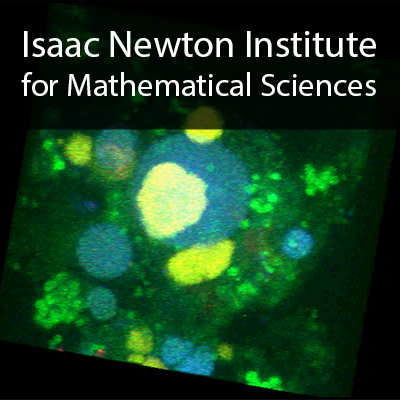How microbial communities drove the evolution of the genetic code more than 3.8 billion years ago
1 hour 14 mins,
683.95 MB,
WebM
640x360,
29.97 fps,
44100 Hz,
1.23 Mbits/sec
Share this media item:
Embed this media item:
Embed this media item:
About this item

| Description: |
Goldenfeld, N (University of Illinois at Urbana-Champaign)
Thursday 06 November 2014, 15:00-16:00 |
|---|
| Created: | 2014-11-12 16:13 |
|---|---|
| Collection: | Understanding Microbial Communities; Function, Structure and Dynamics |
| Publisher: | Isaac Newton Institute |
| Copyright: | Goldenfeld, N |
| Language: | eng (English) |
| Distribution: |
World
|
| Explicit content: | No |
| Aspect Ratio: | 16:9 |
| Screencast: | No |
| Bumper: | UCS Default |
| Trailer: | UCS Default |
| Abstract: | Relics of early life, preceding even the last universal common ancestor of all life on Earth, are present in the structure of the modern day canonical genetic code --- the map between DNA sequence and amino acids that form proteins. The code is not random, as often assumed, but instead is now known to have certain error minimisation properties. How could such a code evolve, when it would seem that mutations to the code itself would cause the wrong proteins to be translated, thus killing the organism? Using digital life simulations, I show how a unique and optimal genetic code can emerge over evolutionary time, but only if horizontal gene transfer within early microbial communities --- a network effect --- was a much stronger characteristic of early life than it is now. These results suggest a natural scenario in which evolution exhibits three distinct dynamical regimes, differentiated respectively by the way in which information flow, genetic novelty and complexity emerge. |
|---|---|
Available Formats
| Format | Quality | Bitrate | Size | |||
|---|---|---|---|---|---|---|
| MPEG-4 Video | 640x360 | 1.91 Mbits/sec | 1.04 GB | View | Download | |
| WebM * | 640x360 | 1.23 Mbits/sec | 683.95 MB | View | Download | |
| iPod Video | 480x270 | 488.98 kbits/sec | 265.02 MB | View | Download | |
| MP3 | 44100 Hz | 251.87 kbits/sec | 136.51 MB | Listen | Download | |
| Auto | (Allows browser to choose a format it supports) | |||||

